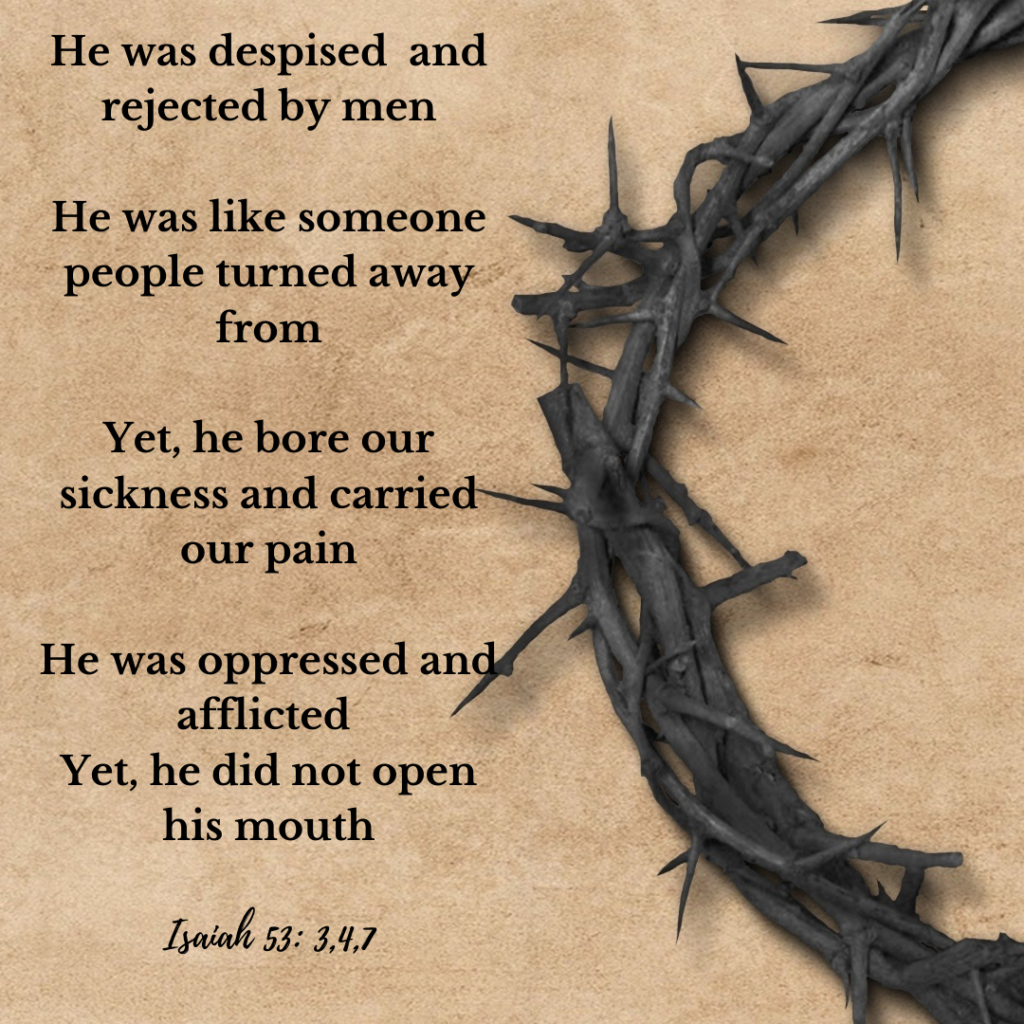Do you ever watch a little boy swagger and say something grown up like his dad? They can’t help it, it’s all they see! Since, I watch six little boys do that frequently, I get a big kick out of their attempts to follow their dads’ characteristics. Intermixed in their own personalities, is a splash of an adult. Although, we too have taken on some characteristics of our parents, when we willingly choose to follow Christ, we are called to leave our parent’s example and follow his.
And boy, did he leave an example to follow!
When he was a boy of twelve and drawn to his Father’s house, he sat among the teachers, listening and asking questions. All those who heard him were astounded at his understanding. When his parents came looking for him, he went with them and was obedient to them (Luke 2:41-51). Something many of us, myself included, have to learn the hard way.
In addition to respecting his parents, Jesus took on the traits of His Father in heaven by showing compassion for people. Traveling to Capernaum, all those who had anyone sick with various diseases brought them to him. As He laid his hands on each one of them, he would heal them.
Also, demons were coming out of many, his example brought crowds to press in on him as he proclaimed the good news about the kingdom of God (Luke 4:20-44). Although, we may not be able to command demons or heal the sick, we sure can pray in Jesus’ name for the person tormented by them. More importantly, as we show compassion, we can also share the news of eternal salvation through Jesus, just as he did.
Leaving a Willing Example to Follow
Jesus’ example of compassion continued throughout his ministry. The poor man with a serious skin disease falls facedown before him and begs him: “Lord, if you are willing, you can make me clean.” Reaching out his hand, Jesus touched him, saying, “I am willing; be made clean.” and immediately the disease left him. Large crowds then followed him to be healed of their sicknesses. The text then says, “he often withdrew to deserted places and prayed” (Luke 5:12-15).
While reading these examples, we can picture the large crowds of people desperate for healing, poor and oppressed, and looking for a savior. The good news of Christ’s message here is: He is willing for all who come to him, to be healed of pain and brokenness.
In essence, redeemed of despair. When we read that he often withdrew to deserted places and prayed, we are reminded of Isaiah’s words, “He bore our sickness and carried our pain”. Can you just picture for a moment, this great crowd of people coming to him every day to restore them? How draining that would be! We can’t handle one person doing it, let alone a whole crowd…every day. Yet, he willingly takes it all upon himself. Drawing on the power of our Father in heaven to renew his own strength. Leaving quite an example to follow!

Healing the sick, while comforting the oppressed and afflicted is such a large part of Jesus’ ministry. We continue to see it throughout the gospels. The people travel from far places, to hear him, be healed of their diseases, and made well of unclean spirits (Luke 6: 17-23). But we must pay close attention to what Jesus suddenly says as the people sense his authority over illness and crowd around him to touch the power coming from him….(yes emanating power, read it, that’s what the scripture says!)
Then, looking up at His disciples, He said:
You who are poor are blessed because the kingdom of God is yours.
You who are hungry are blessed because you will be filled.
You who now weep are blessed because you will laugh.
You are blessed when people hate you, when they exclude you, insult you, and slander your name as evil because of the Son of Man.
Luke 6;20-22
Luke 6 HCSB - Lord of the Sabbath - On a Sabbath, He - Bible Gateway
The more he healed and helped people the more the religious leaders despised and rejected him. Jealous of his power and authority over sickness, death, and disease, they hated him. Not only did they hate him, they rejected his message of salvation, reviled his ministry, accused him of evil, and plotted to kill him. Lingering among the crowds who longed for him, were the haters.
Seeing this in their hearts and reading their thoughts, Jesus suddenly looks straight at his disciples and quotes Isaiah. Reminding the disciples that following his example will lead to slander, insults, and hatred. Blessed friends, it will look the same for us too.
However, Jesus says “rejoice in that day and leap for joy! Love your enemies, do what is good to those who hate you, bless those who curse you, pray for those who mistreat you” (Luke 6:23-27). Jesus then leaves the examples to follow for his disciples, us and our even our own little ones. In verses 27-36 we are called to love our enemies, do good to those who hate us, and pray for those who mistreat us.
Even more, his example shows us he did not condemn or judge them in their hatred. No wonder he went off to pray by himself. Loving people is hard. The pain of their insults and hatred is hard to bear for his huge, loving heart. We can be comforted that he too, called upon the Father for continuing to love despite all the hate.

Lastly, my prayer for us today is to display a bold faith like Christ. Emulating his behavior will show our little ones the shadow of our dad in heaven. Leaving them a higher example to follow.







